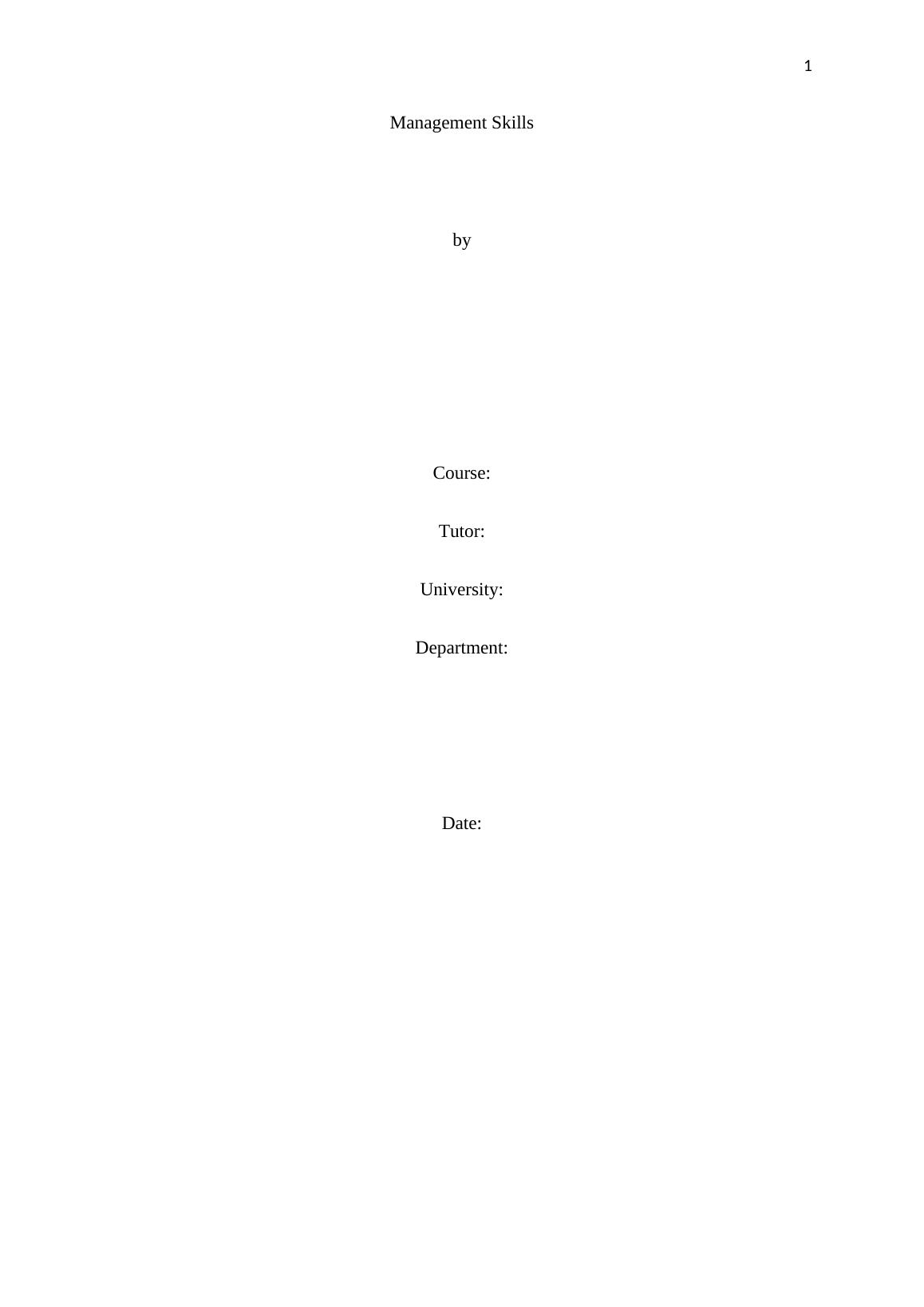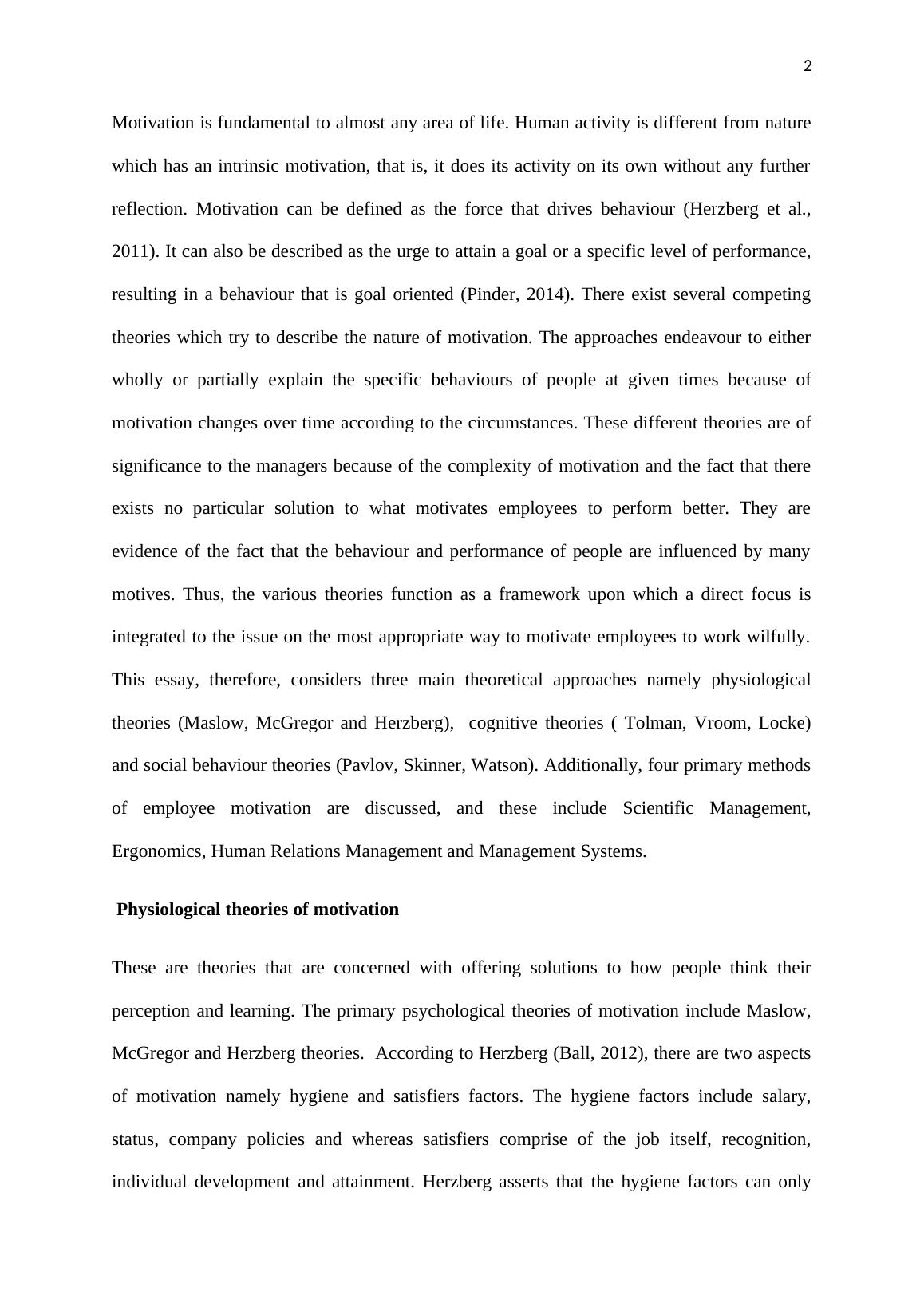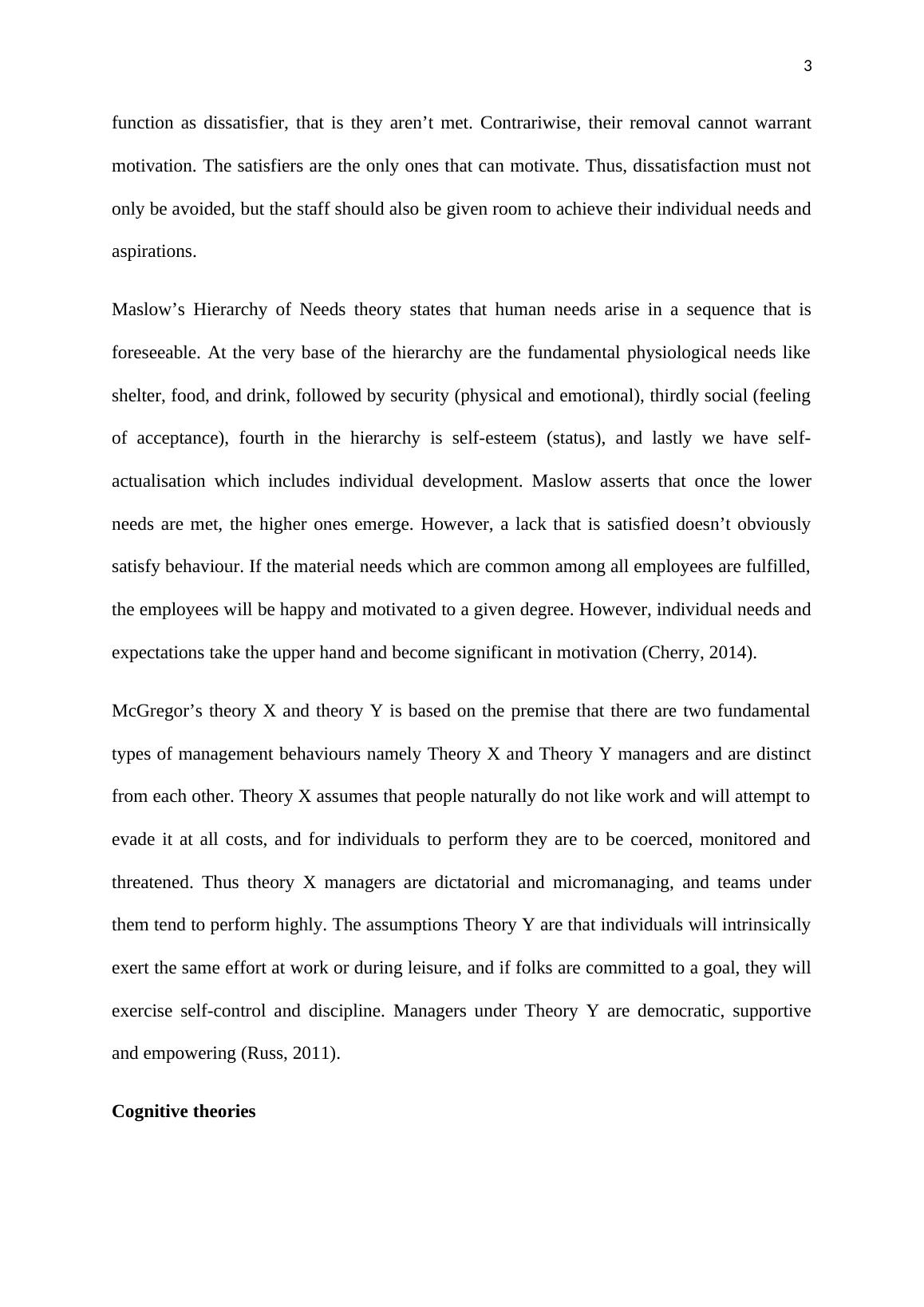Management Assignment | Management Skills
9 Pages2212 Words112 Views
Added on 2020-05-28
Management Assignment | Management Skills
Added on 2020-05-28
ShareRelated Documents
1Management SkillsbyCourse:Tutor:University:Department:Date:

2Motivation is fundamental to almost any area of life. Human activity is different from naturewhich has an intrinsic motivation, that is, it does its activity on its own without any furtherreflection. Motivation can be defined as the force that drives behaviour (Herzberg et al.,2011). It can also be described as the urge to attain a goal or a specific level of performance,resulting in a behaviour that is goal oriented (Pinder, 2014). There exist several competingtheories which try to describe the nature of motivation. The approaches endeavour to eitherwholly or partially explain the specific behaviours of people at given times because ofmotivation changes over time according to the circumstances. These different theories are ofsignificance to the managers because of the complexity of motivation and the fact that thereexists no particular solution to what motivates employees to perform better. They areevidence of the fact that the behaviour and performance of people are influenced by manymotives. Thus, the various theories function as a framework upon which a direct focus isintegrated to the issue on the most appropriate way to motivate employees to work wilfully.This essay, therefore, considers three main theoretical approaches namely physiologicaltheories (Maslow, McGregor and Herzberg), cognitive theories ( Tolman, Vroom, Locke)and social behaviour theories (Pavlov, Skinner, Watson). Additionally, four primary methodsof employee motivation are discussed, and these include Scientific Management,Ergonomics, Human Relations Management and Management Systems.Physiological theories of motivationThese are theories that are concerned with offering solutions to how people think theirperception and learning. The primary psychological theories of motivation include Maslow,McGregor and Herzberg theories. According to Herzberg (Ball, 2012), there are two aspectsof motivation namely hygiene and satisfiers factors. The hygiene factors include salary,status, company policies and whereas satisfiers comprise of the job itself, recognition,individual development and attainment. Herzberg asserts that the hygiene factors can only

3function as dissatisfier, that is they aren’t met. Contrariwise, their removal cannot warrantmotivation. The satisfiers are the only ones that can motivate. Thus, dissatisfaction must notonly be avoided, but the staff should also be given room to achieve their individual needs andaspirations. Maslow’s Hierarchy of Needs theory states that human needs arise in a sequence that isforeseeable. At the very base of the hierarchy are the fundamental physiological needs likeshelter, food, and drink, followed by security (physical and emotional), thirdly social (feelingof acceptance), fourth in the hierarchy is self-esteem (status), and lastly we have self-actualisation which includes individual development. Maslow asserts that once the lowerneeds are met, the higher ones emerge. However, a lack that is satisfied doesn’t obviouslysatisfy behaviour. If the material needs which are common among all employees are fulfilled,the employees will be happy and motivated to a given degree. However, individual needs andexpectations take the upper hand and become significant in motivation (Cherry, 2014).McGregor’s theory X and theory Y is based on the premise that there are two fundamentaltypes of management behaviours namely Theory X and Theory Y managers and are distinctfrom each other. Theory X assumes that people naturally do not like work and will attempt toevade it at all costs, and for individuals to perform they are to be coerced, monitored andthreatened. Thus theory X managers are dictatorial and micromanaging, and teams underthem tend to perform highly. The assumptions Theory Y are that individuals will intrinsicallyexert the same effort at work or during leisure, and if folks are committed to a goal, they willexercise self-control and discipline. Managers under Theory Y are democratic, supportiveand empowering (Russ, 2011).Cognitive theories

End of preview
Want to access all the pages? Upload your documents or become a member.
Related Documents
Principles of Management Assignmentlg...
|7
|1073
|155
Motivation Theories and Their Practical Application in Businesslg...
|7
|2152
|170
Management .lg...
|6
|1412
|437
Introduce to the Motivation Theorylg...
|6
|1163
|40
Leadership for the Program Namelg...
|26
|5450
|24
IBS on HR Case Study: Motivation in Warner Leisure Hotelslg...
|7
|1410
|376
